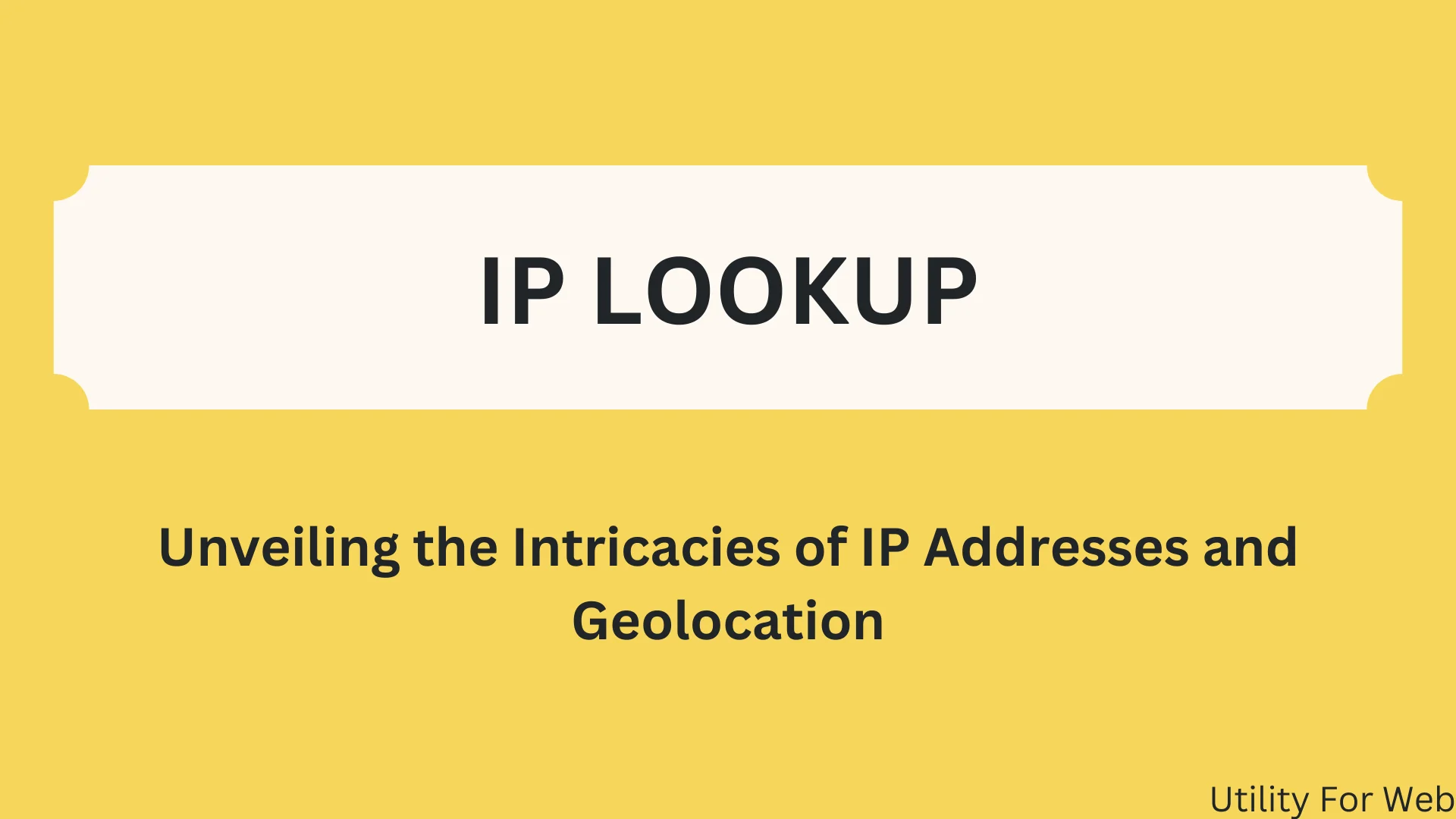Internet Address Lookup Simplified: Mastering IP Lookup and Geolocation Insights
In today's interconnected world, understanding the nuances of IP addresses and their geolocation capabilities is essential for both businesses and individuals. This guide delves into the details of internet address lookup and IP lookup, shedding light on how these tools work and their significance in the digital landscape.
What is an IP Address?
An IP (Internet Protocol) address is a unique identifier assigned to every device connected to the internet. It serves as the address through which devices communicate and exchange data. IP addresses can be categorized mainly into 2 types as below:
- IPv4: This format consists of four sets of numbers separated by periods (e.g., 192.168.1.1). Despite its widespread use, the pool of IPv4 addresses is limited and nearing exhaustion due to the rapid growth of internet-connected devices.
- IPv6: Developed to address the limitations of IPv4, IPv6 addresses are longer and written in hexadecimal (e.g., 2405:201:203d:5072:6482:7f81:9f1d:822a). They offer an essentially limitless number of addresses, accommodating future expansion.
The Role of IP Lookup and Geolocation
An IP lookup involves querying a specific IP address to gather information about its location and the network provider. This process is integral to various applications, from enhancing cybersecurity measures to customizing user experiences based on geographic data.
Geolocation technology uses IP addresses to determine the approximate location of a device. By examining an IP address, it can reveal the country, region, city, timezone, and even the Internet Service Provider (ISP). For instance, an IP address like 49.43.35.247 might be identified as originating from Surat, Gujarat, India, along with details about the local currency and timezone.
Applications of Internet Address Lookup
- Cybersecurity: Businesses use IP lookup to identify and block suspicious activities, such as unauthorized access attempts from foreign countries or regions known for cyber threats. By understanding where a connection is coming from, they can implement more effective security protocols.
- Personalization: E-commerce platforms and online services utilize geolocation data to tailor their offerings to the user's location. This could involve displaying prices in the local currency, offering region-specific promotions, or adjusting content to match local interests and regulations.
- Compliance: Companies must often comply with regional regulations, such as data protection laws. IP lookup helps ensure that data is managed in accordance with local requirements by identifying the origin of connections and applying the necessary compliance measures.
- Marketing: Marketers leverage geolocation data to target campaigns more effectively. By understanding where their audience is located, they can craft messages that resonate with specific regions, improving engagement and conversion rates.
How to Perform an IP Lookup
Performing an IP lookup is straightforward with the right tools. Many online services offer free IP lookup tools that provide comprehensive information about any IP address. These tools are invaluable for anyone looking to understand more about their digital environment or to gather data for business purposes.
Here is a step-by-step guide to performing an IP lookup:
- Access an IP Lookup Tool: Use a reliable online IP lookup service.
- Enter the IP Address: Provide the IP address you want to investigate.
- Analyze the Results: Review the details provided, including the location, ISP, and other relevant information.
The Importance of Privacy
While IP lookup and geolocation offer many benefits, they also raise privacy concerns. Understanding that an IP address can disclose detailed information about your location and internet usage can be disconcerting. It’s crucial to use these tools responsibly and be aware of privacy laws and guidelines.
Users can take steps to protect their privacy, such as using VPNs (Virtual Private Networks) to mask their IP addresses, ensuring that their online activities are not easily traceable.
Conclusion
Understanding the complexities of IP addresses and the significance of geolocation is essential in today's digital era.Whether you are a business looking to optimize your operations or an individual keen on protecting your privacy, mastering internet address lookup and IP lookup can provide valuable insights and advantages. As technology continues to evolve, staying informed about these tools will be essential for navigating the complexities of our connected world.




